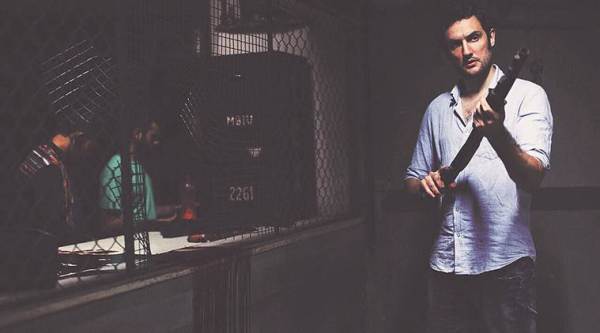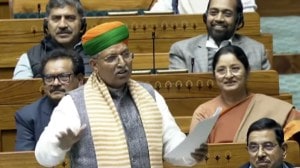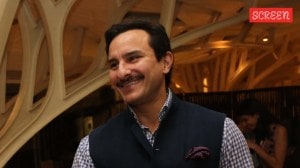Click here to follow Screen Digital on YouTube and stay updated with the latest from the world of cinema.
Ghoul director Patrick Graham: India hasn’t found its voice when it comes to horror
Writer-director Patrick Graham on the making of horror series Ghoul, that’s inspired by Arabic folklore and reflects contemporary Indian realities
 Patrick Graham presents the story of people in an extraordinary situation and their fight for survival.
Patrick Graham presents the story of people in an extraordinary situation and their fight for survival.
After studying in London, what brought you to India?
Nearly eight years ago, I came looking for work. It seemed easier to find work in Mumbai than London, where my parents lived. My first graduate course in filmmaking was from Royal Holloway, London, and the second degree was from London Film School. When I finished my studies in 2008, it was tough to get a job due to the economic crisis. I had a classmate, who was from Mumbai. So, I moved here. A few years later, I set up a production company called Final Call Productions, which made commercials that eventually led to association with Phantom Films in India. Ghoul is my first significant long project as a writer and director.
What made you release Ghoul in three Indian languages, apart from English?
Ghoul came about because I knew Phantom was looking to dabble with the horror genre. When I pitched it, they liked it. However, the show is for the Indian audience, made by Indian people. It is in Hindi because that’s the language we use in Mumbai. It is great that it is available in Tamil and Telugu too. Since I don’t speak very good Hindi, it was a challenge. But I worked closely with the dialogue writer to understand what’s being spoken. We had a bunch people making sure that the Indian language dialogues were close to the English lines and the flavour was retained.
Even though we are calling it a ‘horror’ series, Ghoul has a strong political undercurrent.
Horror is a very broad term. It does not quit encapsulate the series even though it has supernatural elements. It’s meant to be disturbing and make you think about it. It has elements of psychological thriller, suspense and action. We, first and foremost, wanted to make something entertaining and not a political statement. We thought it would be interesting to explore the dystopian future genre. With that genre comes certain tropes that you need to explore.
The series touches upon contemporary issues such as Islamophobia and sectarian violence.
It is set in a fictional world and states in the beginning that the actions unfold in near future. Though at the beginning the series mentions these at a superficial level, eventually it focuses on a small group of people in an extraordinary situation and their fight for survival.
 A still from Ghoul
A still from Ghoul
Ghoul is part of Arabic folklore. What drew you to this concept?
There are different interpretations of what a ‘ghoul’ is. The meaning of the word ‘ghoul’ in English is vague. It could mean a human being preoccupied with death or someone who is morbid. It could also mean someone who is a grave-robber or monster who eats people, or a zombie. What I found interesting is a specific mythology behind this term that comes from the Arabic folklore. The characteristics of that monster were great for my story.
Wasn’t it meant to be a movie originally?
It started off as part of the plan by Jason Blum’s Blumhouse, the production house of Paranormal Activity (2007) and Get Out (2017), and Phantom Films to make some horror movies. When Netflix came on board, they were interested in turning it into a mini-series. In its treatment and content, Ghoul is different from what we see in India.
I’m not an expert on this subject. However, I believe, as a whole, India hasn’t found its voice when it comes to horror. There is so much background of mythology, folklore and superstition in India. Such a small part of that is explored in horror movies. It will be nice to see Indian horror stories that go beyond the usual tropes of women with long black hair or female spirits with their feet upturned.
The series has a Shutter Island (2010) kind of feel, with the characters trapped in one place.
I love Shutter Island (directed by Martin Scorsese). One thing I like doing is confining actions to a single location. Many of my favourite movies, especially those by John Carpenter, are set in under-siege and small places where people are struggling to survive.
You are a Brit who is inspired by Arabic folklore and created a story set in India. Are we going to witness more such cross-cultural narratives in future?
I hope so. This gives room for so many interesting perspectives and stories. The reverse is happening too. Reliance recently funded the Steven Spielberg-directed The Post. Platforms like Netflix and Amazon Prime are allowing a wider scope for storytelling. When its comes to horror, there is a kind of renaissance taking place now thanks to production companies such as Blumhouse. I hope Ghoul represents India’s contribution to that new wave.
- 01
- 02
- 03
- 04
- 05

































